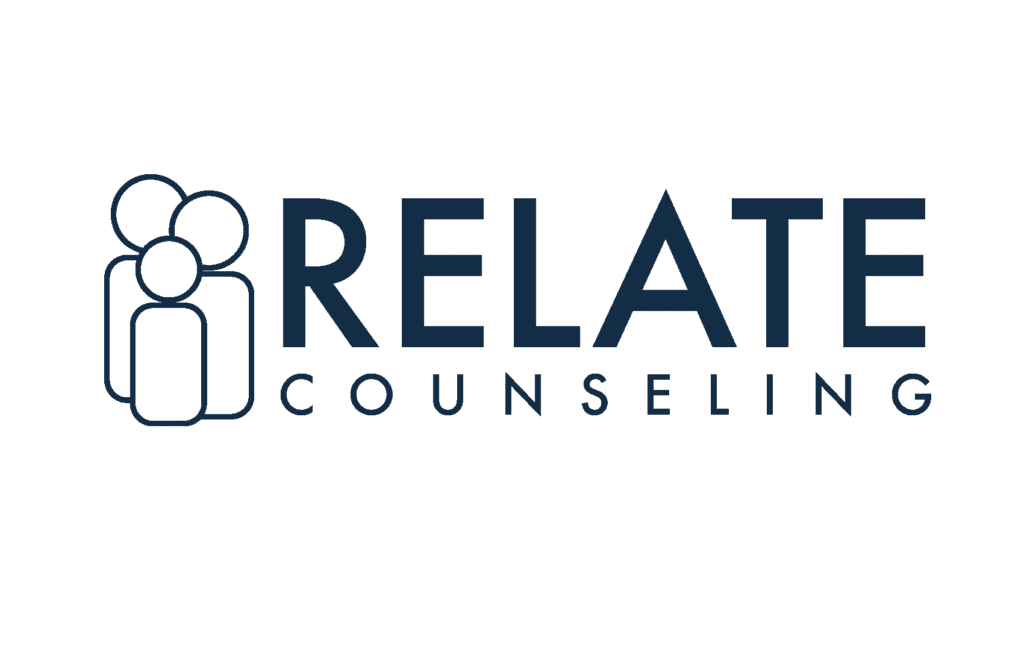Deciding to start a family is an exhilarating time for prospective parents. However, it’s a significant commitment with its fair share of responsibilities and challenges. Understanding the various things to consider when starting a family can help you sail through this journey with greater ease and preparation. This blog explores everything from financial stability to lifestyle adjustments so that you can focus on what truly matters—the joy of bringing a new life into the world.
What Are the Main Things You Need to Consider When Starting a Family?
1. Financial Stability
Financial readiness is one of the primary things to consider when starting a family. Raising a child involves many costs, such as healthcare, education, food, and housing. According to CNBC, raising a child to 18 in the United States is estimated to be well over $230,000. It’s essential to have a financial plan that includes savings, budgeting for child-related expenses, and setting aside a college fund.
2. Health and Wellness
Before expanding your family, it’s important to consider the health of both partners. Pregnancy requires physical and mental preparation and regular check-ups to ensure the well-being of the expectant mother and the baby. The Centers for Disease Control and Prevention (CDC) highlights the importance of prenatal care starting before pregnancy with a preconception care visit to a health care provider.
3. Long-Term Planning
Long-term considerations are as critical as immediate concerns when planning for a family. This means thinking about the kind of upbringing you want for your child, the values you wish to instill, and how you will handle parenting roles. Gauging your long-term goals, including career aspirations and retirement plans, is also an essential part of the puzzle regarding things to consider when starting a family.
4. Work-Life Balance
Having a child will undoubtedly change your professional life and how you balance work with family obligations. Maternity and paternity leave, flexible working hours, and the potential need for parental leave if your child is sick must be considered. Harvard Business Review discusses the challenges and strategies for achieving work-life balance as a parent, emphasizing the importance of workplace flexibility.
5. Location and Housing
Where you live can significantly influence your family’s quality of life. The proximity to quality schools, access to healthcare, the neighborhood’s safety, and community support systems are all important factors to weigh in. The U.S. News & World Report offers insights on the best places to raise a family, indicating the role of the environment in child development and family happiness.
6. Emotional Readiness
Parenting is not just about providing materially for a child; it’s also about being emotionally available. The mental and emotional state of parents can profoundly impact a child’s development. Before starting a family, it’s vital to have a secure and stable relationship with your partner and a support system to help manage the stresses of parenting. Counseling or family therapy can be beneficial in preparing emotionally for the addition of a new family member.
7. Educational Planning
From early on, you’ll want to consider educational opportunities for your child. It involves saving for college and considering the type of early childhood education and primary schooling you prefer. According to the National Association for the Education of Young Children, quality early childhood education sets the foundation for a child’s success later in life.
Other things to consider when starting a family: How Much Does It Cost to Start a Family?
Starting a family is a dream for many, but it’s important to consider the financial realities of introducing a new member into your life. While the emotional and intangible rewards of parenting are immeasurable, the tangible costs indeed can be measured—and it’s best to plan for them. The cost of starting a family can vary widely depending on various factors, including where you live, your lifestyle choices, healthcare expenses, and the support systems you have in place. Here’s a breakdown of some of the costs of starting a family to give you a general idea of what to expect.
8. Prenatal Care and Birth Expenses
The journey to parenthood begins with conception, and healthcare costs can start to accumulate from the moment you find out you’re pregnant. Regular prenatal care visits, ultrasounds, and tests are all part of ensuring a healthy pregnancy. According to data, the average cost for delivery alone in the United States can range from about $5,000 to $10,000 for a natural birth and more for a cesarean section—without considering potential complications that could add to the cost. Insurance coverage can significantly affect these expenses, so understanding your policy is crucial.
9. Baby Gear and Supplies
Preparing for a newborn requires basic supplies, including a crib, car seat, stroller, diapers, clothes, and feeding essentials. Depending on brands and quality, these items can cost anywhere from a few hundred to several thousand dollars in the baby’s first year alone. While getting caught up in buying the best of everything is easy, focusing on necessities and considering second-hand items can help manage these costs.
10. Childcare
Childcare is one of the most significant expenses for new parents, especially if both parents plan to return to work after the birth. The cost of childcare varies significantly by location and the type of care chosen, ranging from in-home care to daycare centers. Monthly costs can run from several hundred to well over a thousand dollars. For many families, childcare represents a substantial portion of their budget, an ongoing cost for several years.
11. Healthcare
Beyond birth costs, children require ongoing healthcare, including regular check-ups, vaccinations, and dealing with the usual array of childhood illnesses, so it’s definitely one of the most important things to consider when starting a family. Healthcare costs will vary based on the type of insurance coverage you have and your child’s healthcare needs. Investing in insurance premiums, co-pays, and out-of-pocket maximums is important.
12. Education
While education might seem a long way off when looking at a newborn, the costs associated with schooling can add up quickly, especially if private schooling or college is part of the plan. Even public schooling can come with expenses for extracurricular activities, supplies, and other fees.
13. Miscellaneous
Other costs, such as increased food and utility expenses, should also be considered. As children grow, so do their needs and interests, which can mean enrolling in sports or music classes, birthday parties, and family vacations.
Why is Family Planning Important Before Starting a Family?
When approached thoughtfully, family planning is a multifaceted process that can lead to a more manageable and fulfilling parenting experience. It allows individuals and couples to make informed decisions that align with their values, capacities, and life goals. Recognizing the importance of family planning is the first step toward responsible and proactive parenthood.
It enables future parents to lay a strong foundation for their family, ensuring they can provide their children with the best possible start. While the path to parenthood is unique for everyone, the universal truth remains that careful, comprehensive planning is invaluable. It encompasses financial readiness, health considerations, career adjustments, and building a support system, all of which contribute to a smoother transition to family life.
Prioritizing family planning can help prospective parents look forward to the joys of starting a family with optimism and preparedness, ready to face the complexities of parenthood.
The Role of Marriage and Family Counseling in Starting a Family
Communication and Conflict Resolution
One of the foundational elements that marriage and family counseling focuses on is communication. Effective communication is key to resolving conflicts arising during the decision-making process about starting a family. Counseling provides couples the tools to express their feelings, fears, and desires openly and constructively. It facilitates understanding and empathy, helping partners to align their goals and expectations regarding parenthood.
Emotional and Psychological Preparation
The emotional and psychological transition to parenthood is profound. Marriage and family counseling can help individuals and couples explore their feelings about this transition, addressing unresolved issues or fears about becoming parents. Counselors can support understanding the emotional impacts of starting a family, from the excitement and joy to the stress and anxiety that can also be part of this journey.
Strengthening the Relationship
The decision to start a family can add new stresses to a relationship. Counseling can help strengthen the couple’s bond by addressing potential issues before they become problematic. It could include discussions about parenting styles, division of responsibility, and maintaining intimacy and connection in the face of new challenges. A strong, healthy relationship provides a solid foundation for the couple and the children they plan to have.
Financial Planning
Though not typically the main focus of marriage and family counseling, discussing financial stability and planning is crucial when considering starting a family. Counselors can facilitate conversations about financial concerns, helping couples develop a practical and realistic plan for managing the additional expenses of having children.
Support Systems
Marriage and family counseling can also help couples to identify and strengthen their support systems. It includes understanding the kind of help they might need, from emotional support to practical assistance, and how to ask for it. A strong support system is invaluable for new parents facing the complexities of raising a child.
Final Thoughts
There are a lot more things to consider when starting a family. Believe that it will be one of the most life-changing experiences a person can have. Considering the responsible and pragmatic elements, such as those mentioned above, you can ensure a smoother transition into this new chapter. While the road ahead may have its share of twists and turns, being prepared with the right things to consider when starting a family can make all the difference.
Financial considerations, health, long-term planning, work-life balance, living environment, emotional readiness, and educational planning are important when starting a family. You lay down a strong foundation for a fulfilling and enriching family life by addressing these areas with the care and attention they deserve.
If you’re thinking about starting this beautiful journey but facing uncertainties or questions, you’re not alone. Relate Counseling is here to support you every step of the way.
Our team of compassionate and experienced therapists specializes in marriage and family counseling, offering you the tools and insights needed to build a strong foundation for your future family. Learn how our marriage counseling services can benefit you at Relate Counseling.
Don’t walk this journey alone; schedule a call with us today.
From couples counseling to helping you navigate how the new dynamics of having your own family, our services are tailored to foster meaningful and secure connections within your restructured family.
Learn more about how we can support you at Relate Counseling. If you have any questions, don’t hesitate to contact us. Let’s work together toward healing and strengthening your family bonds.




